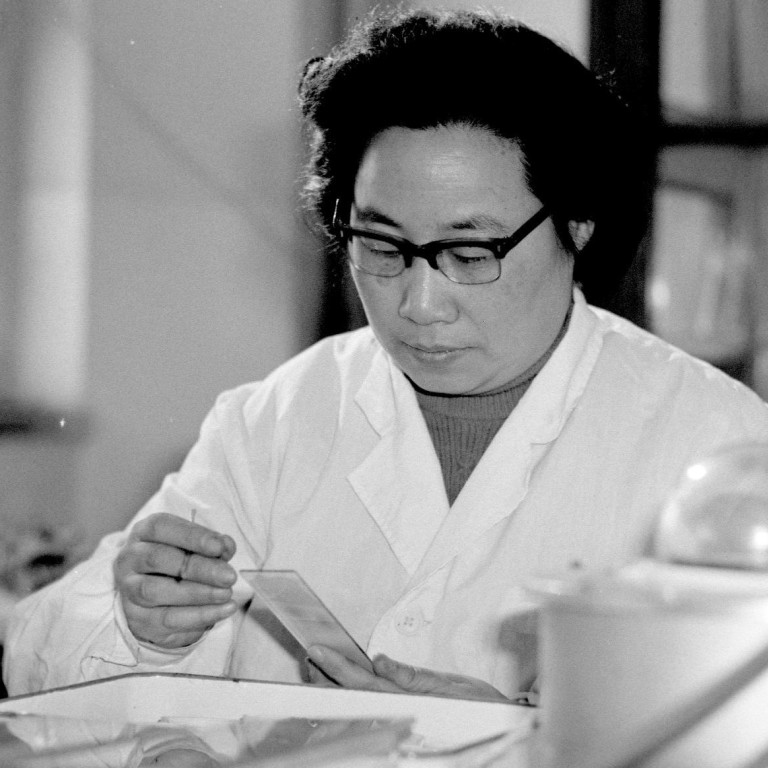
Tu Youyou: the Nobel Prize-winning scientist and the malaria controversy
Tu Youyou, a veteran Chinese medical researcher who became the latest winner of the Nobel Prize for medicine on Monday, is a controversial figure in mainland science.
Tu, who has a bachelor's degree in pharmacy from Peking University and is not a member of the prestigious Chinese Academy of Sciences, has been criticised by some mainland scientists for not crediting her team.
The 85-year-old researcher won the prize for her discoveries concerning a novel therapy against malaria, according to a statement issued by the Nobel Assembly at Sweden's Karolinska Institutet.
When efforts to eradicate malaria failed and the disease was on the rise in late 1960s, Tu turned to traditional herbal medicine to tackle the scourge. Tu was the first to show that a component extracted from the plant , later called artemisinin, was highly effective against the disease, it said.
The secret, military-backed project was supported by the top leadership including Mao Zedong and Zhou Enlai , partly to combat the disease at home and partly to answer a call for help from North Vietnam.
Read more: Blood, sweat and tears: on the path of treating malaria
Tu also won the prestigious Lasker-DeBakey Clinical Medical Research Award in 2011 for the discovery of artemisinin and its use in the treatment of malaria.
Tu has a reputation for being meticulous. "She pays so much attention to details that she seems pretty harsh sometimes," said Lu Aiping, dean of Chinese medicine at Baptist University, who worked briefly with Tu in 2000. "But once she's off from work, she becomes easy-going."
Tu was described in many reports as a modest scientist, but there has always been controversy over who discovered artemisinin. She claimed in her 2009 book that she was the medication's primary inventor.
But the project's deputy director Zhang Jianfang said "Qinghaosu II", developed by Tu's group, was ineffective and had side effects, with its clinical trial stopped in 1973.
Zhang said the team of Li Guoqiao, from Guangzhou University of Chinese Medicine, proved the drug's effectiveness in a 1974 clinical trial. Li and other participants wrote their own account in a book published this year called .

